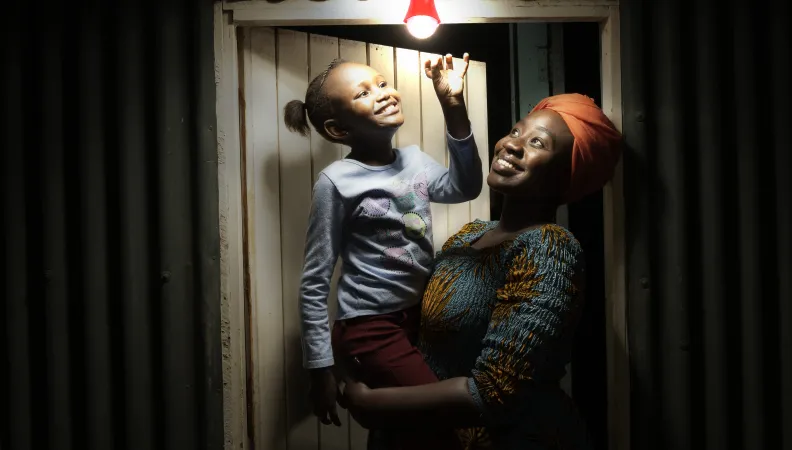Share the page
d.light: improving access to solar energy for people in 4 African countries
Project


-
Signature date
-
-
Location
-
Kenya
-
Financing tool
-
Financing amount (Euro)
-
8900000
-
Financing details
-
USD 10m Equity Investment
-
Customer
-
D. Light Design Inc.
-
Type of customer
-
Company
-
Project number
-
PKE1151
-
Environmental and social ranking
-
IF-B
-
Climate co-benefits
-
Project with climate co-benefits
This information is given at the time of signature, without prejudice to any developments in the operation/project.
The USD 10m of financing for d.light aims to support the company’s strategy: provide solar energy to people who do not benefit from it in 4 countries: Kenya, Nigeria, Tanzania and Uganda.
Client presentation
d.light was set up in 2006 and is an innovative company in the sector of solar energy products. In 15 years, d.light has provided solar energy to over 100 million people in 70 countries. Its range of products goes from very affordable portable solar lamps to domestic solar systems that can power several lamps, mobile phones and small appliances, including a flat-screen TV. d.light’s solar solutions have won a number of international awards and are sold in over 30,000 retail outlets around the world.
Project description
This investment will support d.light’s ambition to continue to provide reliable access to energy for millions of people who are currently deprived of it.
Proparco’s financing is allowing d.light to develop its activities in the field of solar energy and Pay-As-You-Go consumer credit in Africa. This model makes solar products more accessible for low-income clients than the loans offered by banks.
Project impact
Between 2021 and 2025, this project should provide some 1,118,000 people with access to a clean and affordable source of electricity and 400,000 people will have access to Pay-As-You-Go credit facilities.
The project should support 6,800 jobs over the next 5 years, including almost 500 jobs created at d.light. Furthermore, a major transfer of know-how to local workers is planned through training and specific mentoring activities.
Finally, the project will contribute to avoiding the emission of over 550,000 tCO2e per year.


